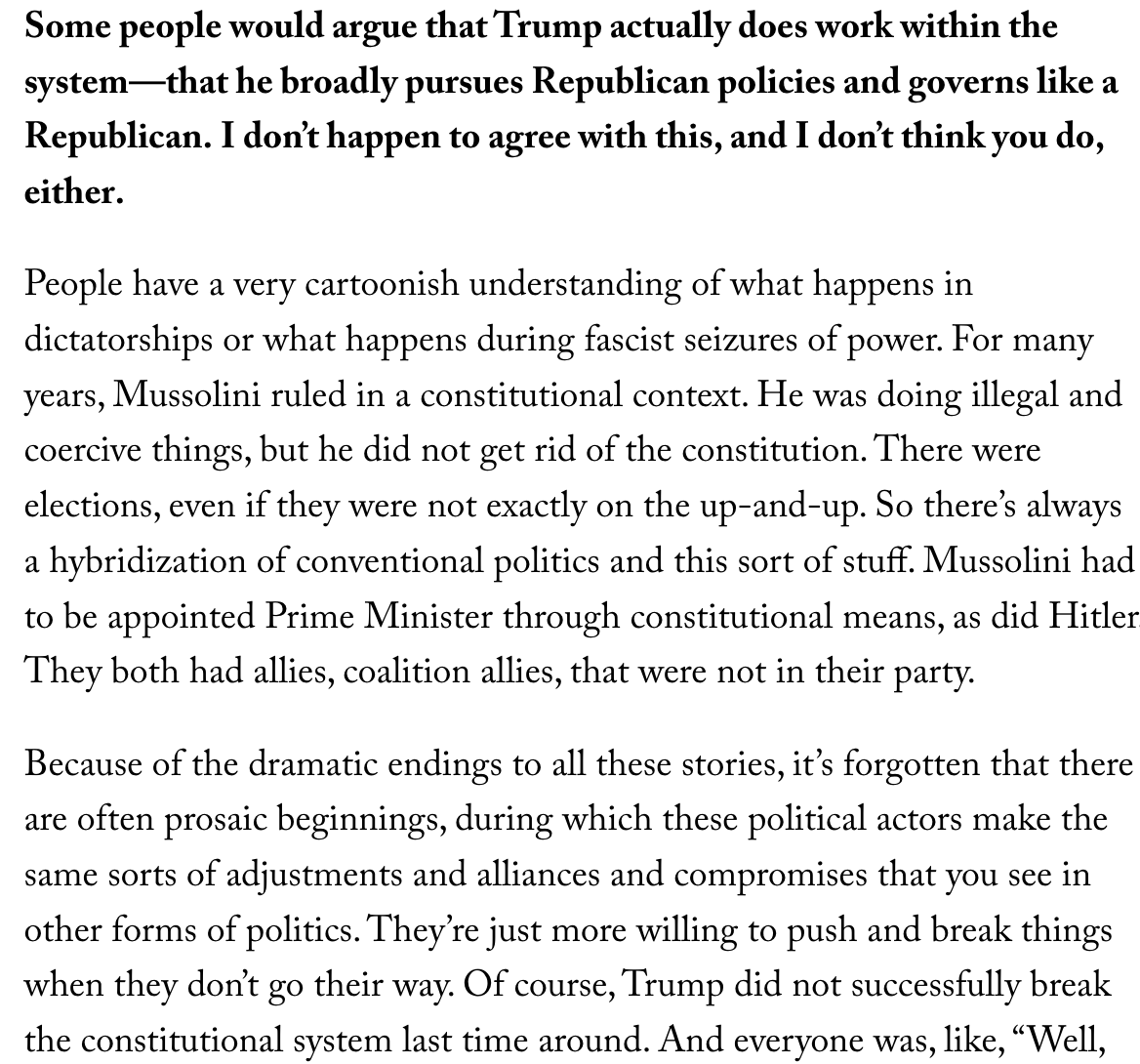Adobe.
"Currently, you cannot stop your plan from renewing automatically. To turn off automatic renewal, you will need to cancel your membership."
You have 14 days to cancel for free at initial purchase. But when they autorenew, even at a new, high price, an early termination fee applies immediately. Hundreds of dollars if your plan was annual.
Get a human on the phone, demand to cancel, whine, and they'll give you a decent deal.
To end the abuse, set a reminder to cancel in the last month.
 Screenshot from Adobe website, URL https://helpx.adobe.com/manage-account/using/manage-auto-renewal-settings.html Text: When does my plan renew? Annual plan Your membership automatically renews each year on your annual subscription date until you cancel it. We will notify you as your 12-month renewal date is approaching and will advise you about any changes that may take effect. Month-to-month plan You'll be charged the rate stated at the time of purchase, every month, until you cancel. Your monthly rate is subject to change, but we'll always notify you beforehand. Can | stop my plan from renewing automatically? Currently, you cannot stop your plan from renewing automatically. To turn off automatic renewal, you will need to cancel your membership. Learn how to cancel your membership.
Screenshot from Adobe website, URL https://helpx.adobe.com/manage-account/using/manage-auto-renewal-settings.html Text: When does my plan renew? Annual plan Your membership automatically renews each year on your annual subscription date until you cancel it. We will notify you as your 12-month renewal date is approaching and will advise you about any changes that may take effect. Month-to-month plan You'll be charged the rate stated at the time of purchase, every month, until you cancel. Your monthly rate is subject to change, but we'll always notify you beforehand. Can | stop my plan from renewing automatically? Currently, you cannot stop your plan from renewing automatically. To turn off automatic renewal, you will need to cancel your membership. Learn how to cancel your membership.
I am very excited that Kamala Harris has chosen Tim Walz.
q. what do the most considerate lovers say just after you climax?
a. please come again!
@marick @BenRossTransit @Alon @richard_merren @scott (off topic, but i love how you footnote your posts, even though i’m not entirely sure how you footnote your posts.)
 Text: The first thing is to help rebuild the union movement. The National Labor Relations Act should be overhauled to require sectoral bargaining, meaning union contracts will be negotiated on an industry-wide basis rather than at each individual shop, and the resulting contract will be extended to every firm regardless of union membership. Stiff penalties will be levied on employers who refuse to negotiate. Second, build a proper welfare state. This will provide an income source to all categories of nonworkers mentioned above, and equalize incomes between households with different numbers of nonworkers. Welfare programs for each category of nonworker—a child allowance, disability and unemployment benefits, a pension for the elderly— will virtually eradicate poverty. Medicare for All will ensure universal health care, and paid family leave, a child allowance, and public day care will enable citizens to have whatever size of family they want. U.S. policymakers are obsessed with means-testing the welfare state, to prevent anyone deemed undeserving from qualifying. But you can just as easily ensure that with stiff and progressive taxation, particularly on the rich. The point is to raise revenue from the broad population to fund the welfare state, while also legally prohibiting the accumulation of vast wealth. Third, rebuild the regulatory state... (truncated due to character limit)
Text: The first thing is to help rebuild the union movement. The National Labor Relations Act should be overhauled to require sectoral bargaining, meaning union contracts will be negotiated on an industry-wide basis rather than at each individual shop, and the resulting contract will be extended to every firm regardless of union membership. Stiff penalties will be levied on employers who refuse to negotiate. Second, build a proper welfare state. This will provide an income source to all categories of nonworkers mentioned above, and equalize incomes between households with different numbers of nonworkers. Welfare programs for each category of nonworker—a child allowance, disability and unemployment benefits, a pension for the elderly— will virtually eradicate poverty. Medicare for All will ensure universal health care, and paid family leave, a child allowance, and public day care will enable citizens to have whatever size of family they want. U.S. policymakers are obsessed with means-testing the welfare state, to prevent anyone deemed undeserving from qualifying. But you can just as easily ensure that with stiff and progressive taxation, particularly on the rich. The point is to raise revenue from the broad population to fund the welfare state, while also legally prohibiting the accumulation of vast wealth. Third, rebuild the regulatory state... (truncated due to character limit)
 Text: Some people would argue that Trump actually does work within the system—that he broadly pursues Republican policies and governs like a Republican. I don’'t happen to agree with this, and I don’t think you do, either. People have a very cartoonish understanding of what happens in dictatorships or what happens during fascist seizures of power. For many years, Mussolini ruled in a constitutional context. He was doing illegal and coercive things, but he did not get rid of the constitution. There were elections, even if they were not exactly on the up-and-up. So there’s always a hybridization of conventional politics and this sort of stuff. Mussolini had to be appointed Prime Minister through constitutional means, as did Hitler They both had allies, coalition allies, that were not in their party. Because of the dramatic endings to all these stories, it’s forgotten that there are often prosaic beginnings, during which these political actors make the same sorts of adjustments and alliances and compromises that you see in other forms of politics. They’re just more willing to push and break things when they don’t go their way. Of course, Trump did not successfully break the constitutional system last time around.
Text: Some people would argue that Trump actually does work within the system—that he broadly pursues Republican policies and governs like a Republican. I don’'t happen to agree with this, and I don’t think you do, either. People have a very cartoonish understanding of what happens in dictatorships or what happens during fascist seizures of power. For many years, Mussolini ruled in a constitutional context. He was doing illegal and coercive things, but he did not get rid of the constitution. There were elections, even if they were not exactly on the up-and-up. So there’s always a hybridization of conventional politics and this sort of stuff. Mussolini had to be appointed Prime Minister through constitutional means, as did Hitler They both had allies, coalition allies, that were not in their party. Because of the dramatic endings to all these stories, it’s forgotten that there are often prosaic beginnings, during which these political actors make the same sorts of adjustments and alliances and compromises that you see in other forms of politics. They’re just more willing to push and break things when they don’t go their way. Of course, Trump did not successfully break the constitutional system last time around.
it would be the ultimate troll of everybody if the VP pick was Rachel Dolezal.
@Alon (it's a UNIX geek dad joke, "cron" is the most common tool for automating tasks that should be run on a set schedule. at the scheduled time, the cron job is said to be "triggered". i just got a "cron triggered" notification—from wordpress, rather than UNIX-native cron, but same idea—and thought of this ha ha.)
do any of you provide trigger warnings to cron?
[New Post] Yimby, taxes, expertise, state capacity, elections, economy https://www.interfluidity.com/v2/10014.html
@BenRossTransit @Alon @marick @scott Right. It's his outspokenness on this issue that has made Israel/Palestine a salient topic when he is discussed. Which seems fair and normal, but it is a disadvantage electorally, given how divisive the issue is within the D coalition. I have no idea how much his views on I/P differ from the other suitors, because whatever they think or have done, the others have been politician-like about trying not to play up an issue that divides their potential voters.
@BenRossTransit @Alon @marick @scott i think the protester/KKK comparison and siding with Republicans re university presidents and policies—whatever your views on the merits!—have been more salient than his views on a two-state solution. he also presents himself almost creepily as Obama 2.0, which gives those of us who think Obama 1.0 was a catastrophe reason to look for disqualifications.
@Alon @marick @scott Foreign policy is important. But Israel is one tiny country that I hope figures out a modus vivendi with its neighbors and with the inhabitants of the territories it claims to govern, so that we can all treat it that way. Under any administration, Israel is unlikely to enjoy the degree of indulgence to which it has grown accustomed from the US in 2032. Some of us are pretty mad to be on the verge of a dangerous, unaffordable war because of its reckless leader.
@marick @scott @Alon i've generally heard from people i trust Pritzker's been pretty good. i know literally nothing specific about how he's governed, but based on others' plaudits, i'd be fine if he were the dark horse VP. again, Israel/Palestine is not highly salient in his public profile, even though he is Jewish, and I take that as an advantage (especially the combination), wherever he falls within the broad spectrum on that issue that mainstream Democrats take.
@Alon @marick @scott What is salient about Walz has nothing to do with his views on / governance related to Israel / Palestine.
Which is a reason to support him, because whatever your view, Israel / Palestine is a wedge issue that splits the Democratic coalition much more than the Republican coalition.
I like Walz because of his success at social democratic governance (by US standards) in MN—despite a thin legislative majority—and his forthright, common-sense defense of those policies.
it’s fucking raining. no joke.
@scott @Alon basically we have no idea, based on born-to-wealth alone. we could learn something about the dude! but, well, it’s a pretty unlikely conjecture still, might not be worth the time…
@_dm it’d be nice if that were immunity enough. but people are very generous with tendentious accusations unfortunately.
@Alon me too, as a prior, but born billionaires are at least better than those who flatter themselves self-made!
 Screenshot from Adobe website, URL https://helpx.adobe.com/manage-account/using/manage-auto-renewal-settings.html Text: When does my plan renew? Annual plan Your membership automatically renews each year on your annual subscription date until you cancel it. We will notify you as your 12-month renewal date is approaching and will advise you about any changes that may take effect. Month-to-month plan You'll be charged the rate stated at the time of purchase, every month, until you cancel. Your monthly rate is subject to change, but we'll always notify you beforehand. Can | stop my plan from renewing automatically? Currently, you cannot stop your plan from renewing automatically. To turn off automatic renewal, you will need to cancel your membership. Learn how to cancel your membership.
Screenshot from Adobe website, URL https://helpx.adobe.com/manage-account/using/manage-auto-renewal-settings.html Text: When does my plan renew? Annual plan Your membership automatically renews each year on your annual subscription date until you cancel it. We will notify you as your 12-month renewal date is approaching and will advise you about any changes that may take effect. Month-to-month plan You'll be charged the rate stated at the time of purchase, every month, until you cancel. Your monthly rate is subject to change, but we'll always notify you beforehand. Can | stop my plan from renewing automatically? Currently, you cannot stop your plan from renewing automatically. To turn off automatic renewal, you will need to cancel your membership. Learn how to cancel your membership.

